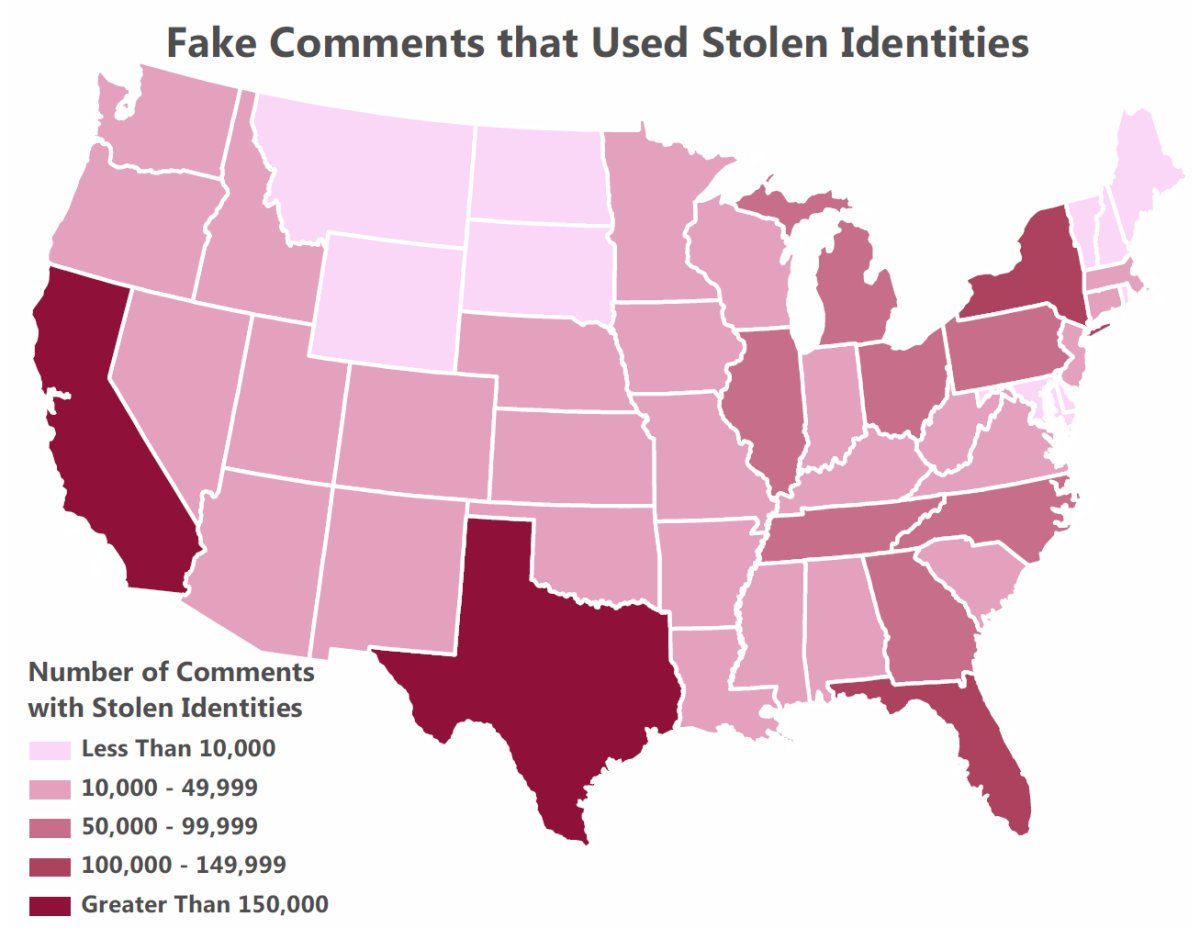
On the Eve of the Vote
As the Federal Communications Commission (FCC) votes today, December 14, on whether to repeal Obama-era laws requiring net neutrality from internet service providers (ISPs), New York Attorney General Eric T. Schneiderman has released new details finding that more than two million comments on the net neutrality repeal were made using stolen identities.
The news broadens the scope of the fraud first reported by Schneiderman’s office, as well as an independent investigation that found that at least 1.3 million pro-repeal comments, and likely more, were faked.
“Millions of fake comments have corrupted the FCC public process — including two million that stole the identities of real people, a crime under New York law,” Attorney General Schneiderman said in a statement. “Yet the FCC is moving full steam ahead with a vote based on this corrupted process, while refusing to cooperate with an investigation.”
The attorney general’s office stated in a December 13 press release that more than 5,000 people had already filed reports with the office about the use of stolen identities to add comments on the net neutrality repeal. These stolen identities included multiple deceased Americans, minors, elderly persons unaware of the FCC vote, and even a U.S. Navy service member that was on an airplane at the time a comment was posted in their name.

The FCC General Counsel has refused to cooperate with Schneiderman’s investigation into the fraudulent votes, and despite Schneiderman’s efforts to stall it, the FCC plans to hold the December 14 vote as scheduled.
“As we’ve told the FCC: moving forward with this vote would make a mockery of our public comment process and reward those who perpetrated this fraud to advance their own hidden agenda,” said Schneiderman. “The FCC must postpone this vote and work with us to get to the bottom of what happened.”
You can investigate whether an identity has been used falsely and report misuse to the Attorney General’s office through their Fake Comments Portal.
Ending the Internet as We Know It
Should the net neutrality repeal go through, it would undo requirements laid out in the Open Internet Order of 2015, which classified ISPs as “common carriers” under Title II of the Communications Act of 1934. This is the same category that phone and electricity providers fall under.
Just as an electric company can’t decrease the reliability of a person’s power because they use a washing machine manufactured by a competitor, the Open Internet Order requires that ISPs treat all data on the internet equally. That means a provider can’t slow down your buffer speeds if, say, you watch your favorite show through a streaming service run by a competitor.
The FCC’s public comment process is valuable as it gives the commission a way to hear directly from citizens on any proposed policy changes. The significant amount of fraudulent activity that took place during the net neutrality comment period must be investigated for the process to retain its legitimacy.
Still, given that FCC chairman Ajit Pai has previously expressed that the number of public comments opposing the plan — an estimated 98.5 percent of all legitimate comments — will not convince him to change course on the repeal, the point may be moot in this particular instance.